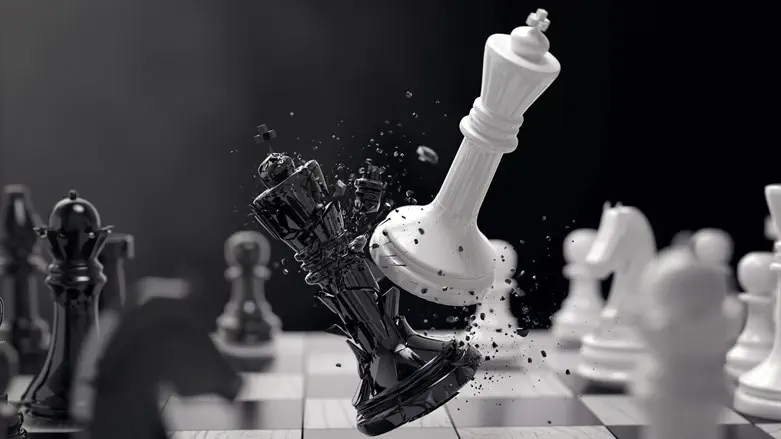
Dr. Avi Perry, talk show host at Paltalk News Network (PNN), is the author of "Fundamentals of Voice Quality Engineering in Wireless Networks,"and "72 Virgins," a thriller about the covert war on Islamic terror. He was a VP at NMS Communications, a Bell Laboratories - distinguished staff member and manager, as well as a delegate of the US and Lucent Technologies to the ITU—the UN International Standards body in Geneva, a professor at Northwestern University and Intelligence expert for the Israeli Government. He may be reached through his web site www.aviperry.org
During my early years, my father introduced me to the game of chess. Though he wasn't an expert, his emphasis on strategy profoundly influenced me. He advised, "Always anticipate your opponent's next move following yours, and assess your move's quality based on your ability to respond accordingly. If you can think ahead, not just about your immediate move but also about a series of potential moves and reactions, you're more likely to succeed."
This principle extends beyond chess, playing a crucial role in life's decisions. It's particularly relevant in the context of contemporary discourse involving criticism of Israel, support for Hamas, political leanings, and even among some of Israel's purported allies. The influence of Hamas's narrative has often obscured the necessity for forward-thinking, especially regarding the consequences of calls for an immediate ceasefire without considering the long-term implications.
To grasp these consequences fully, it's instructive to examine the period following Israel's withdrawal from Gaza in 2005. Israel left behind substantial infrastructure, which could have significantly improved living standards in Gaza, had there been efforts to leverage this legacy positively.
However, Hamas had different plans. Soon after Israel left Gaza, Hamas carried out a violent coup, eliminating the Fatah leaders in place and setting the stage for ongoing conflict with Israel. The launching of rockets at Israeli civilian areas began in earnest in 2008, leading to cycles of ceasefires after Israeli responses. These truces, often mediated by Egypt and Qatar, were tactical for Hamas, allowing them to recover from Israeli strikes. Despite these pauses, Hamas maintained its grip on power and continually planned for further escalations, launching thousands of rockets. This pattern of initiating attacks, followed by a ceasefire and then breaking it with even more severe attacks, perpetuated a cycle of violence, with temporary halts only setting the stage for the next round of conflict.
Senate Majority Leader Chuck Schumer proved himself today to be a single move chess player. He demonstrated a limited strategic perspective. His call for early elections in Israel, hoping for new leadership to seek an early ceasefire, was not only misguided but also revealed a lack of understanding of the situation on the ground. Despite some Israelis' desire for a change in leadership, there is broad support for the current policies regarding the Gaza conflict. A more appropriate action might have been for Shumer to advocate for changes and early elections closer to home, reflecting the sentiments of US citizens eager for a cognitively unimpaired leadership that can competently address their needs and challenges.
Advocating for a ceasefire in Gaza without the disarmament and elimination of Hamas overlooks the pattern of temporary truces being shattered by subsequent escalated attacks from Hamas, as evidenced by past actions and Hamas’s stated intentions. Such a ceasefire promises to be ephemeral, likely paving the way for further assaults on Israeli communities, including potential invasions and acts of extreme violence, in line with both recent history and Hamas's public statements. This raises critical questions about the foresight and reasoning of those pushing for a ceasefire under these conditions. Are they considering the probable outcomes of such a ceasefire? Do they contemplate what the near future would hold post-ceasefire? The ability to think through these implications might well reflect on one's IQ and analytical depth. I encourage you to share your thoughts on this. Take a moment to consider it.